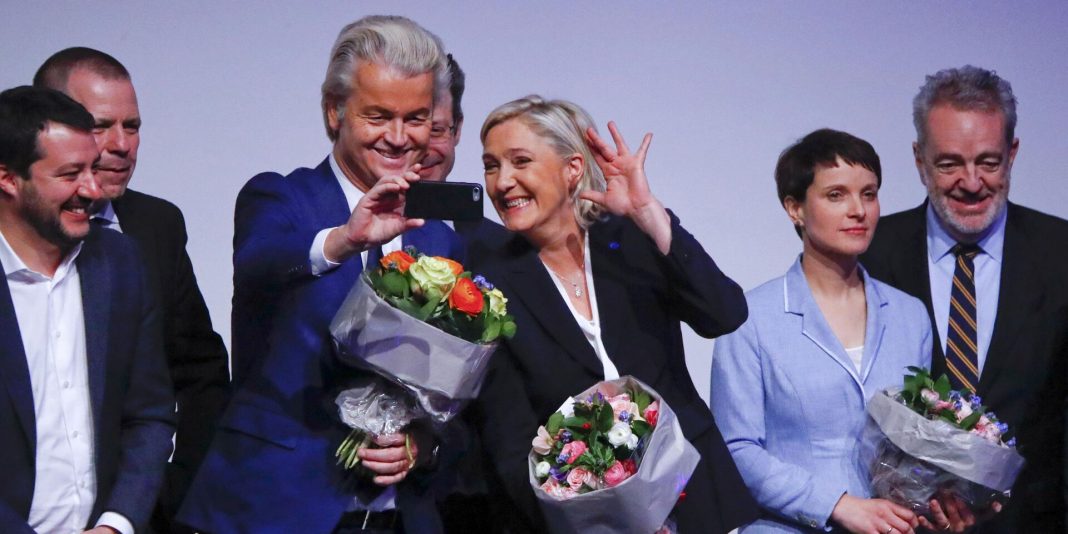In a political sense, Europe is noticeably moving to the right, and the topic of a right turn has become firmly entrenched in political discourse. Even a superficial analysis of the internal political situation in many countries of the European Union demonstrates a common trend in the South, North, West and East of Europe: far-right parties are experiencing a revival and a noticeable rise.
Moreover, it is not so important what policy they adhere to nostalgic nationalism, populist nationalism, or conservatism with neo-fascist roots. Today, even interest in the upcoming elections in the European Parliament is largely determined by what result the right will get and whether they will be able, as Hungarian Prime Minister Viktor Orban says, to “occupy” Brussels and change the policies of the European Union.
The “fateful nature” of the upcoming elections was pointed out, in particular, by the EU High Representative for Foreign Affairs and Security Policy, Josep Borrell, who expressed concerns in an interview with the British newspaper The Guardian about a possible qualitative change in the composition of the EP parliamentary corps. Both he himself and other representatives of the European leadership openly demonstrate extreme concern about the prospect of a sharp increase in the share of the right of all shades following the results of the elections to the European Parliament, including those Eurosceptics who dream of destroying the European Union – this time from within.
In this paper, Ascolta studies the political situation in the European Union and also studies electoral sentiment ahead of the elections to the European Parliament, which will take place in early June and have a high chance of demonstrating a significant strengthening of right and far-right political forces.
This Content Is Only For Subscribers
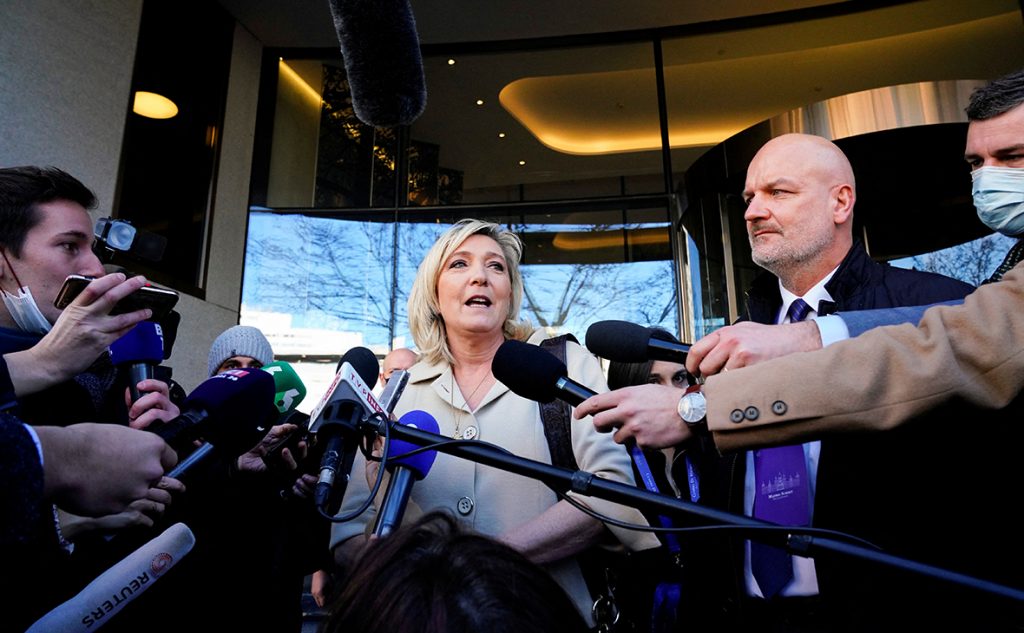
According to Borrell, European voters see the right as the force that will help eliminate the uncertainty caused by Ukraine and the Middle East wars. “Europeans will vote for the right because they are afraid. It has been scientifically proven that fear in the face of the unknown and uncertainty produces a hormone that gives a feeling of security,” said the head of EU diplomacy. He emphasised that he considers the elections to the European Parliament to be as fateful for the EU as the US presidential elections, where Donald Trump could return to power. Concerns similar to Borrell’s were expressed by the new French Foreign Minister, Stephane Sejournet, who recently chaired the liberal group Renew Europe in the European Parliament. In an interview with Reuters, he noted: “With far-right populists coming to power almost everywhere in Europe, we risk an ungovernable Europe.”
It is important to note that right-wing ideology did not begin to gain momentum in Europe yesterday. For example, since 2010, Viktor Orban has been confidently strengthening his power in Hungary, and since 2015 in Poland, the right-wing “Law and Justice” has won all elections. Every year, the voices of right-wing parties become louder, and judging by the results of elections in many states, they have gone on an active political offensive throughout Europe. Right-wing populists and far-rights are winning national elections, forming coalitions and entering parliaments and governments. But perhaps the most important thing is that the far right, which until recently was looked down upon by the political establishment, calling them losers and marginalised, has firmly entered the political discourse and gained a foothold in the European mainstream. And cooperation with them in several centre-right parties is no longer considered a “criminal”. Moreover, in some cases, the extreme right has already become the government itself and is actively shaping the current political agenda. In the last two years, this trend has been increasingly confirmed.
The “right-wing” pragmatism of the Brothers of Italy, the radicalisation of Sweden and the unchangeable ambitions of Viktor Orban
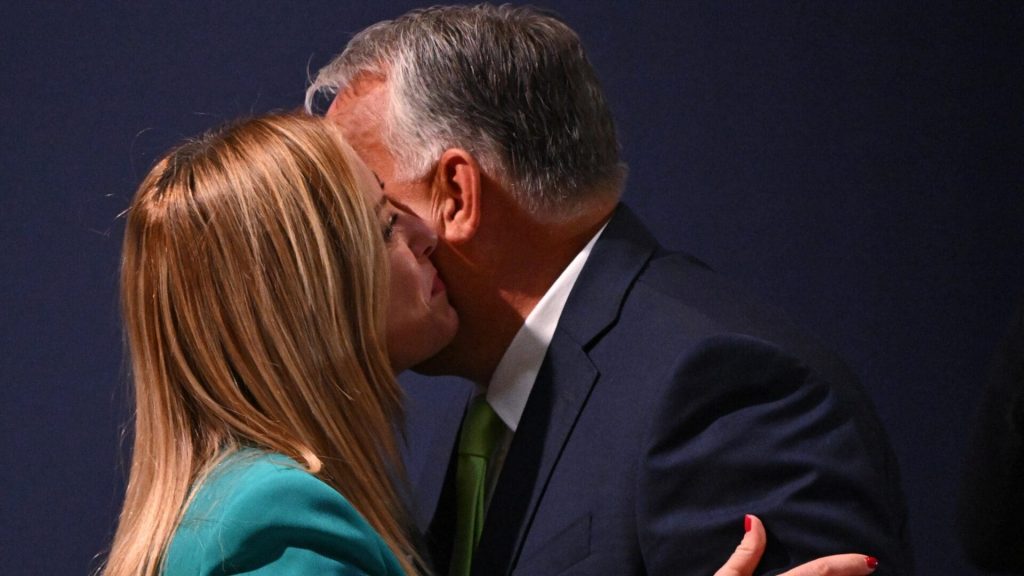
The first shock in the political Olympus of Europe occurred following the results of the parliamentary elections in Italy in September 2022, where the centre-right coalition led by Giorgi Meloni’s Brothers of Italy party won. Meloni became Italy’s first woman prime minister, and the country received its first right-wing coalition government since World War II. The result shown by the “brothers” – 26% – was even slightly higher than preliminary forecasts. On the contrary, Matteo Salvini’s Brotherhood-allied League performed slightly worse than expected, gaining about 9%. The late Silvio Berlusconi’s Forza Italia, the third force in the centre-right coalition, predictably secured the support of 8.1% of the electorate. Another party from the right-wing coalition, “We are Moderate”, gained slightly less than 1%. Thus, the total figure for the right was more than 44%.
Given that the Brothers of Italy have roots in Benito Mussolini’s fascist party, it is not surprising that many were alarmed by the rise to power of a far-right party, especially on the centenary of the fascist seizure of power in Italy in October 1922. True, Meloni herself said in an interview: “If I were a fascist, I would say so directly. However, I am not a fascist.” However, she was in no hurry to criticise the country’s fascist past, just as she did not refuse the torch on the party emblem so as not to lose the votes of Mussolini’s fans. Many political scientists note that in recent decades in Italy, especially with the worsening economic situation, there has been a form of rehabilitation of fascism. Nobody wants those times to return. However, more and more people are beginning to believe that “not everything was so bad.” Therefore, Meloni, making virtually no comments on the Mussolini era, could appear at the event accompanied by the dictator’s granddaughter named Raquel (she, by the way, represented her party in the elections) and did not criticise her comrades-in-arms who organised a gala dinner in honour of the anniversary of the March on Rome.
Many political experts often call The Brothers of Italy a post-ideological party. “Post-ideological” means that this party has a flexible and rather vague ideology that allows it to manoeuvre within the conservative agenda. By the way, we can also agree with those political scientists who believe that the time of right-wing parties with a clearly defined ideology has passed. The leadership of political forces acts more situationally, primarily focusing on the needs of their voters. For example, right-wing voters in Italy are very pragmatic. They often change parties within the right camp and vote for the leader who, at the moment, seems more successful than others – the main thing is that he can stop the left. This happened with Matteo Salvini’s League in the 2018 elections, and the same thing happened with the Brothers of Italy in 2022.
At that time, the party’s position in the elections was called too radical, even for right-wing parties. However, after taking office, Meloni demonstrated to everyone her ability to adapt promptly and quickly “change shoes.” She has, so to speak, rebranded herself and today positions herself as the leader of the “usual conservative force.” Non-systemic parties and movements often become systemic and enter parliaments and governments. Their radicalism in speeches at rallies, in parliamentary debates and in election campaigns is muted and “haired down” over time. The same thing happened with Meloni.
Before coming to power, the Brothers of Italy was considered an anti-European party. They initially opposed the federal model of the European Union, advocating a return to a “confederation of sovereign states.” However, with the move to the Chigi Palace (the prime minister’s residence), George Meloni adjusted her agenda and now positions herself as a reliable partner of Brussels. She fit in well with the European establishment and became part of the company of heads of state and government at EU and NATO summits.
Her first state visit was to Brussels, where she met Ursula von der Leyen. Populism in elections is, of course, good, but when you come to power, you need money. In particular, EU funds from the famous National Recovery and Resilience Fund. Italy’s recovery plan, which follows the unprecedented COVID-19 crisis, consists of 132 investments and 58 reforms and is supported by grants totalling €68.9 billion, as well as €122.6 billion in loans. And as it turned out, money corrects any political views.
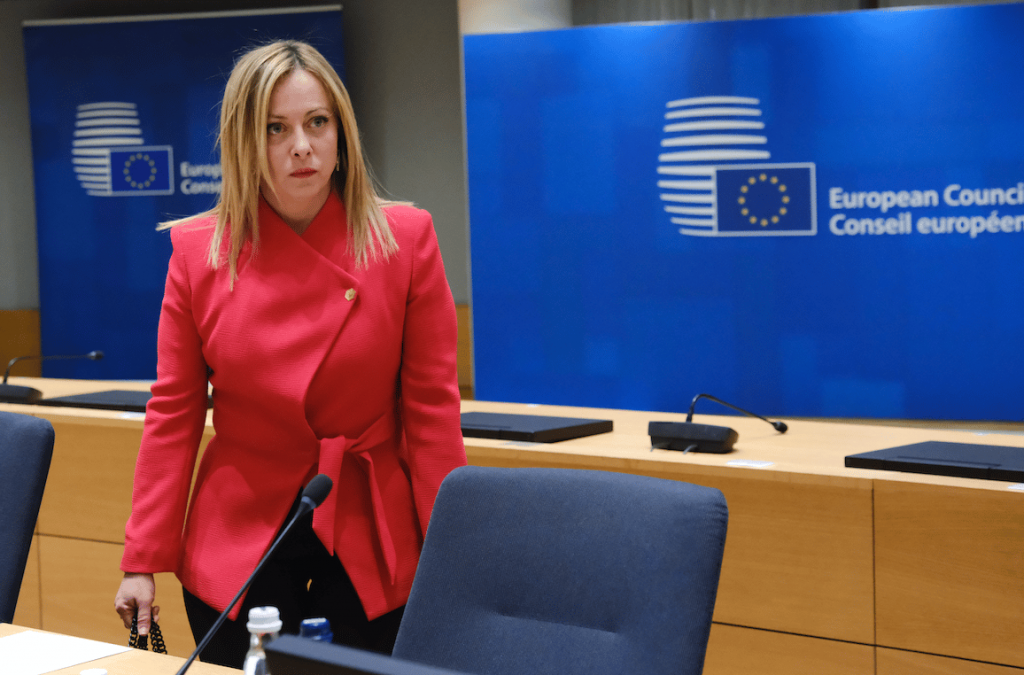
Recently, you have heard about the dissatisfaction of the European Union with the latest “innovations” of the Meloni government: the fight against rave parties, the ban on the use of artificial intelligence ChatGPT, synthetic meat, and even the introduction of large fines for the use of English words in official communications. However, from a foreign policy point of view, such an approach can hardly be called severe. Instead, these are funds for domestic consumption, which opponents have already dubbed “a weapon of mass distraction” from serious problems associated with the protracted energy crisis, the rising cost of living, and the growing flow of migrants.
Many political observers have aptly noted that whenever the Meloni government finds itself in a difficult situation, it quickly devises controversial policies that can divert attention from its poor performance and disastrous policies. Therefore, all these symbolic battles and Meloni’s contradictory decisions will unlikely lead to a confrontation with the European Union. This is nothing more than an attempt to follow, at least somehow, the right-wing agenda and a remedy for the disappointment of its voters.
But on the external front, everything remains unchanged. The views of Brussels and Rome coincide entirely, and above all, on Ukraine. The Italian prime minister expresses his full support for Kyiv and considers talk about the need to start negotiations as soon as possible “populism.” Moreover, Italy led the G7 this year, and, as Reuters notes, Meloni intends to “use his G7 presidency to strengthen the shaky unity of the United States and its allies on assistance to Ukraine.” Meloni’s cabinet plans to “dispel the myth of growing fatigue due to the need to support Kyiv, which has failed to achieve the results expected in the West, on the battlefield.” It is clear that Meloni is trying to benefit from the shift of the centre of European politics to the east due to the war in Ukraine, a shift that has given greater importance to Poland and Hungary.
Thus, the victory of the far right in Italy in September 2022 became a prelude to the subsequent success of far-right parties in some European countries.
Also, in 2022, the far-right party “Swedish Democrats” achieved triumphant success in the parliamentary elections in Sweden, gaining 20.5% and becoming the second political force in the country. What was especially impressive was that, contrary to European trends, the far right turned out to be popular among young voters—and even schoolchildren. So, the country that gave the world the famous environmental activist Greta Thunberg began rapidly changing its priorities.
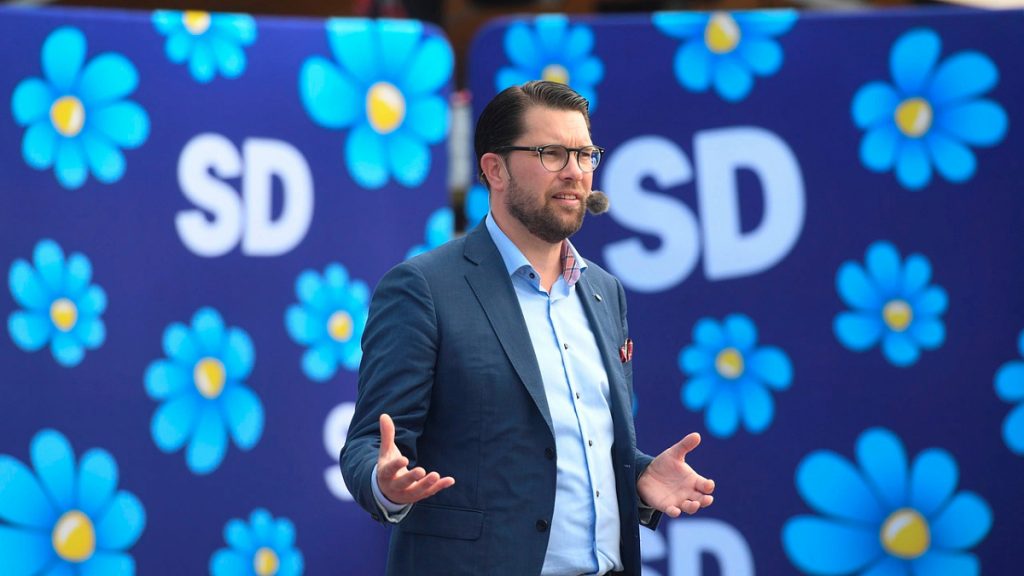
The leader of the Sweden Democrats, Per Yimmi Åkesson, deserves special attention, who joined the party when he was not yet 20 years old. He became the party’s leader in 2005 – and since then, in each parliamentary election, it has received more votes than in the previous ones. The party started with a modest 2.6% in 2006, and in 2022, as already noted, gained 20.5%. His party comrades describe Åkesson as a charismatic person who associates himself with the “deep” Swedish people, traditions and regions. Significantly, Åkesson comes from Southern Sweden – where the party still has the most vital positions. In most constituencies in the southern region of Skåne, the Sweden Democrats even became the most popular party in the parliamentary elections, gaining up to 40% of the votes at the polling stations.
During the elections, the “Swedish Democrats” “saddled” two key topics on the agenda: the problematic situation with migrants, which for the relatively small Sweden, unlike many other European countries, did not fall out of focus, as well as an increase in crime, especially a significantly increased number of murders, with the use of firearms. This situation was primarily associated with the activity of criminal groups, and this, in turn, with the failures of the integration of migrants. There is a problem with the increase in crime in areas of compact settlement of migrants – the police recognise in Sweden the presence of so-called vulnerable areas in which 550 thousands of people live. The dynamics of recent years show that ethnic Swedes are trying to leave these areas, and they are becoming more and more ethnically monotonous. This whole situation played into the hands of the Sweden Democrats, who felt most confident in this area and, moreover, were not bound by excessive political correctness, for example, blaming Muslim migrants for the situation.
As a result of the elections, the Sweden Democrats were not included in the government coalition. Still, they provided the necessary support to the centre-right government of Prime Minister Ulf Kristersson. In return, the party expects the government to promote its migration policy. Åkesson also does not abandon his views regarding the European Union, considering it necessary to reconsider Sweden’s membership in the EU: “With more and more elements of far-reaching symbolic politics, EU membership is becoming dangerously similar to a straitjacket that we simply have to accept and live with” and adds that “Sweden’s influence on EU policy is too small for it to make a difference.”
Another expected right-wing triumph occurred in 2022 in Hungary. For a long time, European people preferred to believe that the Hungarian case was exceptional, an exception to the rule. And formally, the pro-premier right-wing populist Hungarian party Fidesz has always dispensed with the prefix “ultra” or “extreme”. This time, Fidesz won its fifth parliamentary election with 54% of the vote, forming a parliamentary majority, and its longtime leader, 60-year-old Viktor Orban, became prime minister for the fifth time. He has a long-standing conflict with the leadership of the European Union, which consistently accuses him of undermining democratic institutions, nationalism and authoritarianism. However, this did not in any way affect the electoral preferences of Hungarians. In the upcoming elections to the European Parliament, Viktor Orban hopes to give battle to Brussels and increase his party’s representation in the EP.
Consolidation of the trend: new successes and relative failures
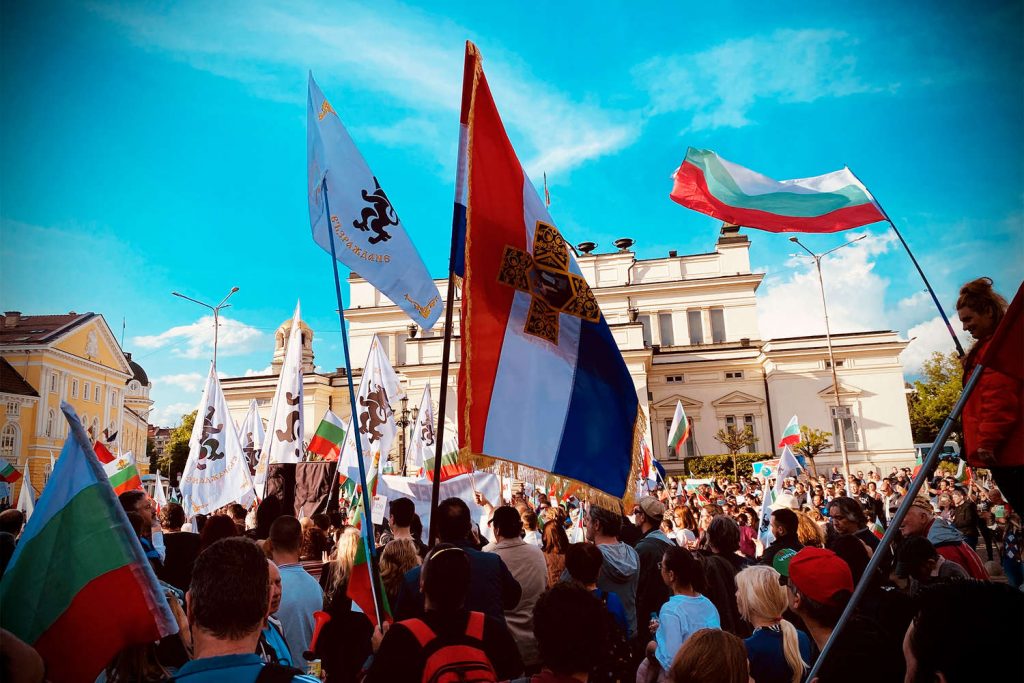
2023 passed in the wake of a strong consolidation of the trend of success of right-wing parties in national elections in Europe. The far-right achieved its first successes in Finland. In April, the right-wing nationalist True Finns party took second place (the party’s best result in history) and entered the government. According to the results of the elections in Bulgaria and Greece, the far right, although they did not get into government, significantly improved their results compared to previous elections.
For the first time, two far-right parties entered the Greek parliament. “Spartans”, who gained 4.7% in the elections and have 12 mandates. The party is linked to former member of the banned neo-Nazi Golden Dawn party Ilias Kasidiaris, who is now behind bars. The second party, “Niki” (“Victory”), with a rating of 3.7% of the votes, has ten seats. It has backing from the Greek Orthodox Church and has gained supporters thanks to protests against COVID-19 vaccinations.
In Bulgaria, the Revival party, which is not called pro-Russian, took ten more seats than in the previous elections – 37 out of 240. On the eve of the elections to the European Parliament and early parliamentary elections, the sixth in the last three years, also scheduled as of June 9, “Vozrozhdenie,” according to sociologists, ranks fourth in the national ranking with a support level of 10.3%.
In the early parliamentary elections in Spain, contrary to all forecasts, the far-right Vox and their supposed main allies – the centre-right People’s Party – could not reach the top of power. As a result of the elections on July 23, power remained in the hands of the socialist Pedro Sanchez. Vox (“Voice”) received only 33 seats (out of 350) in the Congress of Deputies, although they had 52 seats in the last parliamentary elections. The result obtained was even lower than the minimum number of votes required to file an appeal against changes in legislation to the Constitutional Court. In recent years, Vox has literally bombarded the court with appeals against the liberal laws of the Pedro Sánchez government regarding the rights of transgender people, the permissibility of euthanasia, and even the state of emergency imposed by the authorities during the pandemic.
Party leader Santiago Abascal blamed the loss on his colleagues from the People’s Party, who stole some of the votes from his electorate. But this is just the tip of the iceberg. In many ways, the unfulfilled entry of the far-right into the ruling coalition is explained by Spanish specifics: the country lived under the Francoist dictatorship for almost 40 years, and the population developed a kind of antidote to the far-right discourse. Although this state of affairs began to change with the massive influx of migrants into the country five or six years ago, polls in the run-up to the elections showed that 60% of Spaniards were not at all impressed by the entry of far-right forces into the country’s government.
However, the relatively modest results of the Spanish ultra-right were more than offset by the electoral successes of their like-minded people in other countries. One of the prominent examples in this series was the victory of the right-wing conservative Swiss People’s Party (SVP) in the elections to the country’s parliament. She received 28.6% of the vote (more than three per cent more than during the previous vote in 2019). The votes received were converted into 62 deputy mandates for the party. The SVP improved its previous result and was significantly ahead of its closest competitor, the Social Democratic Party. Given that the Swiss People’s Party criticised the country’s joining the sanctions against Russia, considering it a violation of the principle of neutrality, the election results demonstrated that many Swiss desire to avoid other people’s conflicts. This is a kind of Euroscepticism, albeit in a slightly different interpretation. In addition, it turned out that the migration problem worries the population much more than, for example, the green agenda. The fight against illegal immigrants became the hallmark of the Swiss People’s Party about two decades ago, and its bet, as it turned out, was quite winning. The political force has remained the largest faction in the National Council in recent years.
Another right-wing success awaited in Slovakia. In September 2023, in the parliamentary elections, 42 of 150 mandates were won by the “Course – Social Democracy” party of right-wing populist Robert Fico, which, together with the far-right Slovak National Party and the “Voice” party of now Slovak President Peter Pellegrini, formed a parliamentary majority and Fico became prime minister of the country.
Political earthquake in the Netherlands, AfD surprises and Sarah Wagenknecht’s hybrid
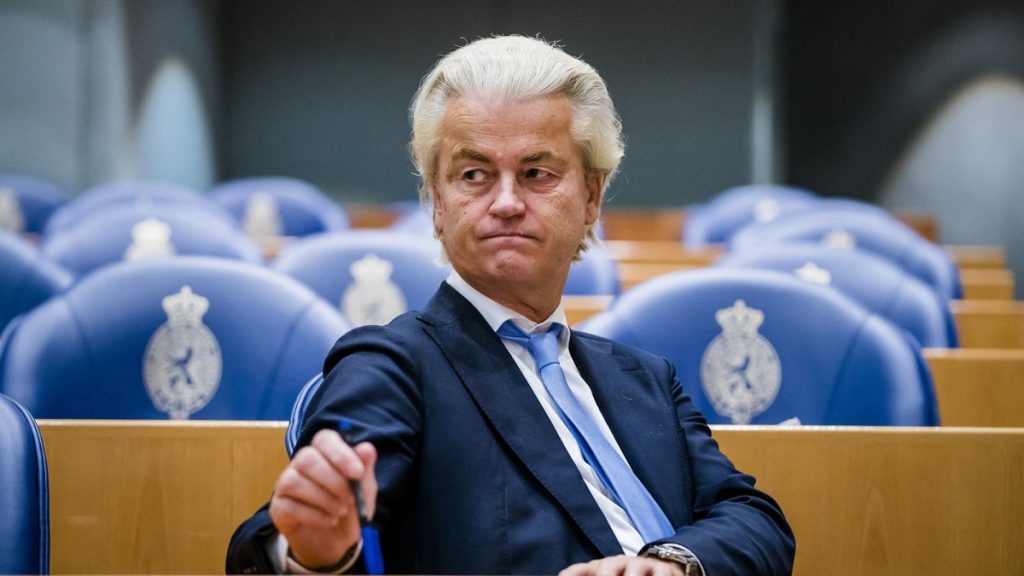
In November 2023, the Freedom Party (RVV), led by far-right populist Geert Wilders, won early parliamentary elections in the Netherlands. He is a Eurosceptic who advocated leaving the European Union and also an ardent anti-Islamist, whose views for many years repelled all the leading political forces of the country from cooperating with him, and he was made a target of extremists. Wilders is also often called the “Dutch Trump,” not only because of his blond hair but also because of his eccentricity and anti-immigrant rhetoric. The EU called Wilders’ victory a “political earthquake” and “Brussels’ worst nightmare.”
The Freedom Party was founded by Geert Wilders in 2006 and is therefore well known to voters. In the two previous elections, she even took second and third place in terms of the number of votes but was forced to remain in opposition because she was not accepted into the government coalition. The two pillars of his election campaign are the fight against migrants and Euroscepticism.
Anti-Islamism is Wilders’ calling card. Calls for a ban on mosques, the Koran and Islamic headscarves in government buildings, and “zero migration” were at the centre of his political manifesto. In response, the politician received threats against him, which is why the police had to put him under round-the-clock protection. As for his Euroscepticism, the politician has long proposed that the Netherlands restore border controls on the country’s currently open borders within the EU, declared his intention to hold a referendum on leaving the European Union (Nexit, similar to British Brexit), and openly opposed “hysterical Russophobia.” in Europe. True, after the start of Russia’s aggression against Ukraine, Geert Wilders distanced himself from the Kremlin, calling Russian actions in Ukraine a mistake. But he has not become a fan of Kyiv either: during recent election debates, the head of the Freedom Party said that he would not support sending more weapons to the Ukrainians.
Despite the results of the recent elections, Wilders’ prospects of leading the government remain doubtful. The victory of an ultra-right politician in the elections will not necessarily lead him to the position of the new Prime Minister of the Netherlands. Given the refusal of the three largest parties to enter into a coalition with the Freedom Party, Geert Wilders will indeed have a challenging time creating a government. And as most experts predicted, coalition negotiations dragged on indefinitely. Mark Rutte, who has led the country for the past ten years, will remain in office until the start of the new government. By the way, in 2021, Rutte spent 271 days persuading his party’s coalition partners, and the maximum time politicians in the Netherlands used to create a government was 299 days. So there is still time before the record.
The victory of Geert Wilders’ party caused enthusiasm and upsurge among the European right-wing forces. French far-right icon Marine Le Pen said the result “confirms a growing commitment to defending national identity.” At the same time, the head of the anti-immigration League party and Deputy Prime Minister of Italy, Matteo Salvini, considered the success story of Geert Wilders to be proof that “a new Europe is possible.” Similar enthusiastic forecasts of an upcoming shift to the right throughout Europe on the eve of the forthcoming European Parliament elections in the summer of 2024 were also made by one of the leaders of the German Alternative fur Deutschland (AfD, the “Alternative for Germany”) party, Alice Weidel.
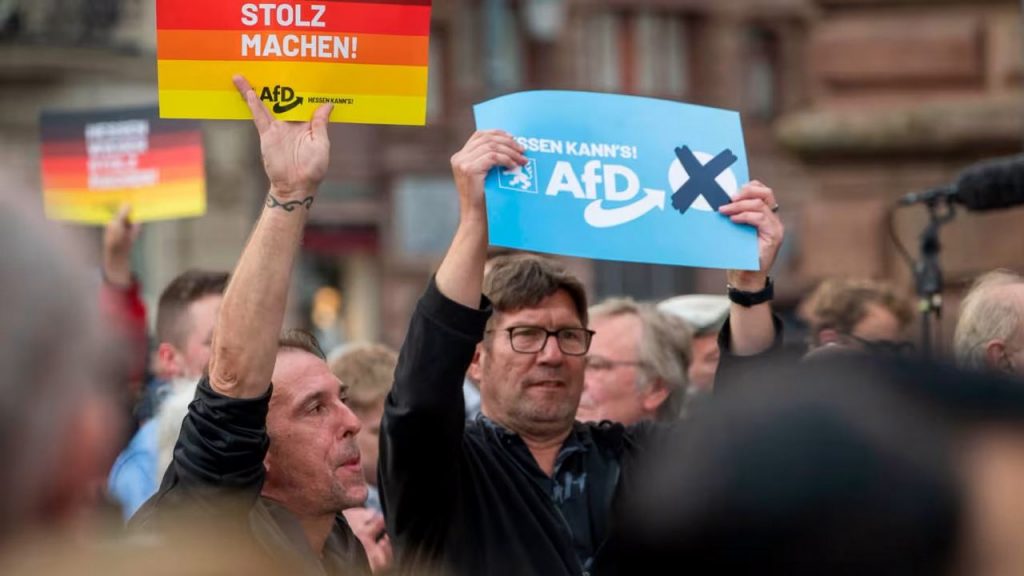
The AfD is a relatively new political force in Germany and combines Euroscepticism and an anti-migration stance. Back in 2017, representatives of this party, which began its rise in the wake of the migration crisis in Europe in 2015–2016, became the third force in the German Bundestag. But over the past year, they have become even more vital. Last year, the Alternative for Germany became the main political surprise in Germany. The AfD’s rating was just over 20%, and it became the second most popular political force in Germany after the now-opposition Christian Democratic Union and the Christian Social Union in Bavaria. Optimism was also inspired by the impressive results shown by the AfD in elections in two Western states.
The conservative Christian Social Union (CSU) in Bavaria and the Christian Democratic Union (CDU) in Hesse won the battle for a majority in the Landtags (local parliaments). However, the first place of these parties did not come as a surprise, in contrast to the impressive result of the Alternative for Germany, which sharply improved its performance and, for the first time, was able to secure remarkable support from voters in West Germany. Before this, the East German lands were considered the inheritance of the AfD.
Local parliamentary elections in Bavaria and Hesse, held in October 2023, were very significant. Firstly, the voting that took place two years before the general German elections in the states where about a quarter of the German population lives revealed an evident increase in conservative sentiment among the electorate. Secondly, a severe failure was recorded by all three parties from the ruling federal coalition. Electoral fatigue with the old parties, playing on social fears from a slowdown in economic growth, the consequences of increased migration and the “green transition” policy became the reason for the popularity of the “Alternative for Germany”.
Its successes seriously alarmed official Berlin. An entire anti-right campaign has unfolded in Germany. Germany witnessed large-scale protests held under the slogans: “Defend democracy”, “No place for Nazis”. More than 300 thousand people took part in one of the events. The mainstream media constantly attacks it, the AfD continues to be closely monitored by the intelligence services, and they are even trying to accuse it of plotting a coup. In Germany, there was talks of a possible ban on the party. However, as noted in the German press, sinking the Alternative is not so easy. The procedure for banning a party in Germany is incredibly demanding and can take years. Whether the leaders of the “traffic light” coalition ruling in Germany will decide to take this step is a big question. However, according to Politico, on January 23, the German Supreme Court came out for a ban on state funding of “extreme right-wing” political associations that “express contempt for the free democratic order” and seek to replace democracy in Germany with authoritarian governance models. According to observers, this decision could become a prelude to subsequent legal steps to limit the activities of the Alternative for Germany party.
So far, the campaign is bearing fruit – the growth of the AfD rating has slowed down a little and, in some places, even sank. The decline in support for the Alternative for Germany was also affected by the scandal over the possible connections of its deputies with a pro-Russian influence network that was exposed in Europe. According to a survey conducted by the sociological institute INSA for the publication Bild in April 2024, the rating of Alternative for Germany dropped to 18%. However, it firmly holds second place in the national party rankings, behind only the opposition bloc CDU/CSU with 30% of voter support, and ahead of the unexpectedly returning leader to the group, the Social Democrats of Olaf Scholz, who have 16%. However, the AfD’s chances of success in the European Parliament elections remain very high.
Sarah Wogenknecht presented another surprise to the German political establishment. She is a recognisable and very extraordinary person in politics. She began her political career in the Socialist Unity Party of Germany (SED) at the end of the German Democratic Republic. The SED was later transformed into the Party of Democratic Socialism, the predecessor of the “Left”. In the modern history of the left movement, Sarah Wagenknecht was both deputy party chairman (2010–2014) and faction leader in the Bundestag (2015–2019). However, tension between the politician and the party has been growing increasingly in recent years. As a result, Sarah Wagenknecht left the Left Party and, in October 2023, created her political party, the Sarah Wagenknecht Union for Reason and Justice (BSW).
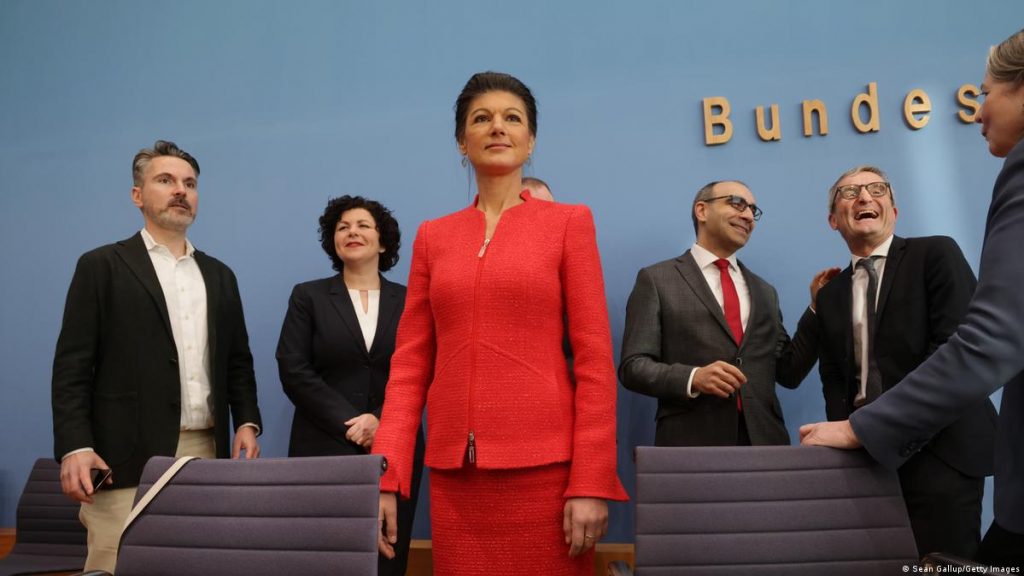
Of course, in the context of analysing the right-wing movement in Europe, the mention of a new ultra-left party is not accidental. Firstly, Wagenknecht understood perfectly well that by losing their positions, the left and she would be dragged to the political bottom. Now, unfettered by party shackles, it has excellent opportunities to manoeuvre between left and right political agendas. Actually, her party is a hybrid of left and right, which puts it in the category of “post-ideological” parties with a vague ideology and flexible tactics and strategy that make it possible to attract both left and right voters.
The Sarah Wagenknecht Union positions itself as a left-wing party on economic policy issues but a right-wing party on social policy issues. Sarah Wagenknecht consistently opposes “uncontrolled immigration and constantly criticises the German government for allocating budgetary funds to support Ukrainian refugees. She considers it necessary, at all costs, to prevent the emergence of “parallel societies” in Germany, which, according to her, has already become a fact in France, “where entire urban areas have ceased to be a reflection of French society.” The leader of BSW also considers the climate policy of the German government to be erroneous, in particular the decision to ban the production of cars with internal combustion engines (ICE) in 2035. Instead of a ban, says Wagenknecht, it was necessary to encourage automakers to produce more economical internal combustion engines.
It differs from all political forces in Germany on the issue of Russian aggression against Ukraine. BSW opposes arms supplies to Ukraine and for the immediate start of peace negotiations between Kyiv and Moscow. Wagenknecht stated that her political force is not a pro-Putin party and has no sympathy for the Kremlin. Now, the program of the Wagenknecht party is based on the manifesto of the association of the same name, and they want to develop a detailed agenda with the participation of party members and experts for the next parliamentary elections in Germany in 2025. In June the party will take part in the elections to the European Parliament. The next stage is autumn elections in three federal states: Saxony, Thuringia and Brandenburg. The AfD’s position there is strong, and Sarah Wagenknecht intends to give battle to the right-wing populists on their field. In the meantime, experts’ forecasts that BSW will quickly gain 14% support are not justified. According to the latest survey, the Sarah Wagenknecht Union’s rating is 6%.
The Right Continues to Amaze
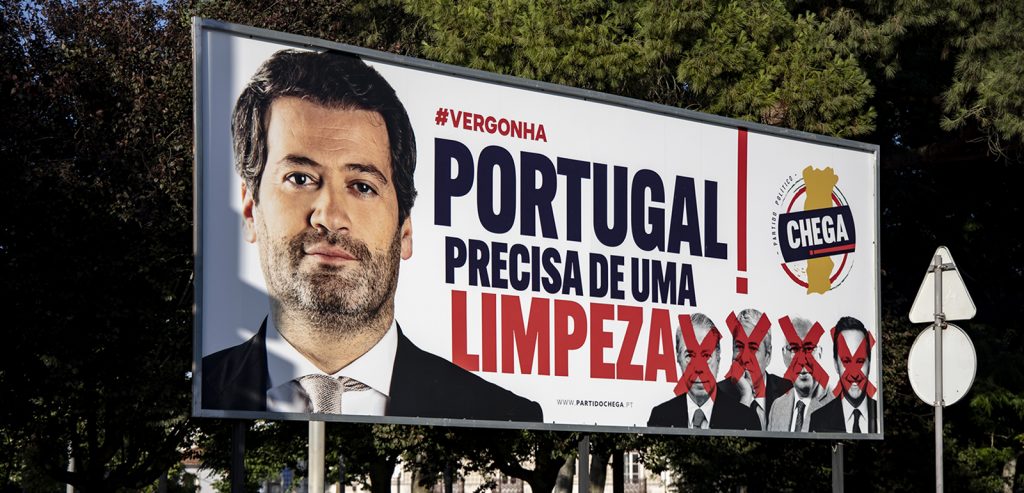
The New Year 2024 once again brought electoral success to the far right. This time, in the Portuguese parliamentary elections, the main event was the sensational success of the far right from Chega (“Enough”), who received 18% of the vote, an overall third place and 48 seats out of 230 in parliament.
For a long time, Portugal, which will celebrate the fiftieth anniversary of the fall of the dictatorship of Antonio Salazar on April 25, has stayed away from the European trend towards strengthening right-wing sentiment. In the 2019 elections, Chega was supported by only 1.3% of voters in 2022 – 7.3% (12 seats in the Assembly of the Republic). The strong showing of Chega, led by former football commentator Andre Ventura, in the early elections on March 10 marked the end of the “Portuguese exception,” experts say. Chega appealed to a growing number of disaffected voters, accusing successive left- and centre-right governments of systemic corruption. During the election campaign, Ventura promised to cleanse Portugal of the socialists and social democrats who had dominated Portuguese politics since the Carnation Revolution. Chega expects a good result in the European Parliament elections. Ventura has already established relationships with other right-wing parties, including Vox, in neighbouring Spain.
Many are accustomed to looking at modern Austria as a traditionally stable and neutral corner of Europe, and yet processes are steadily and increasingly dynamically maturing in the country, which is already introducing noticeable turbulence into the local political climate. It is important to note that in 2024, Austria will face not only elections to the European Parliament but also the renewal of the National Council, the lower house of parliament. Accordingly, political life in the country is already showing increased activity.
The troublemakers were sociologists who began to record that the ruling coalition of the Austrian People’s Party (ÖVP) and the Green Party (Grüne) began to lose popularity. According to voters, the “black greens” (the party colours of the coalition) are not coping with the challenges the country is now facing. “The current government agenda must better protect our interests,” the Austrians decided and again turned their attention to the Eurosceptics from the Freedom Party of Austria (FPÖ), who quickly navigated the needs and preferences of the population and consistently scored points.
It would seem that after the loud Ibiza Gate scandal in 2019, the party sank to the political bottom, from which it will never emerge. Let us recall that the German publications Der Spiegel and Süddeutsche Zeitung published a multi-hour video filmed with a hidden camera in a specially rented and bugged villa on the Spanish island of Ibiza on July 24, 2017 – a few months before the parliamentary elections in Austria. The lens caught a conversation during which the former Vice-Chancellor of Austria and ex-head of the Austrian Freedom Party (APS) Heinz-Christian Strache promised a young woman posing as the niece of the Russian oligarch Igor Makarov government contracts and 50 per cent of equity participation in the newspaper Die Kronen Zeitung in exchange for funding the APS election campaign. In addition to Strache, another high-ranking APS functionary, Johan Gudenus, a former member of parliament and former vice-burgomaster of Vienna, took part in the meeting.
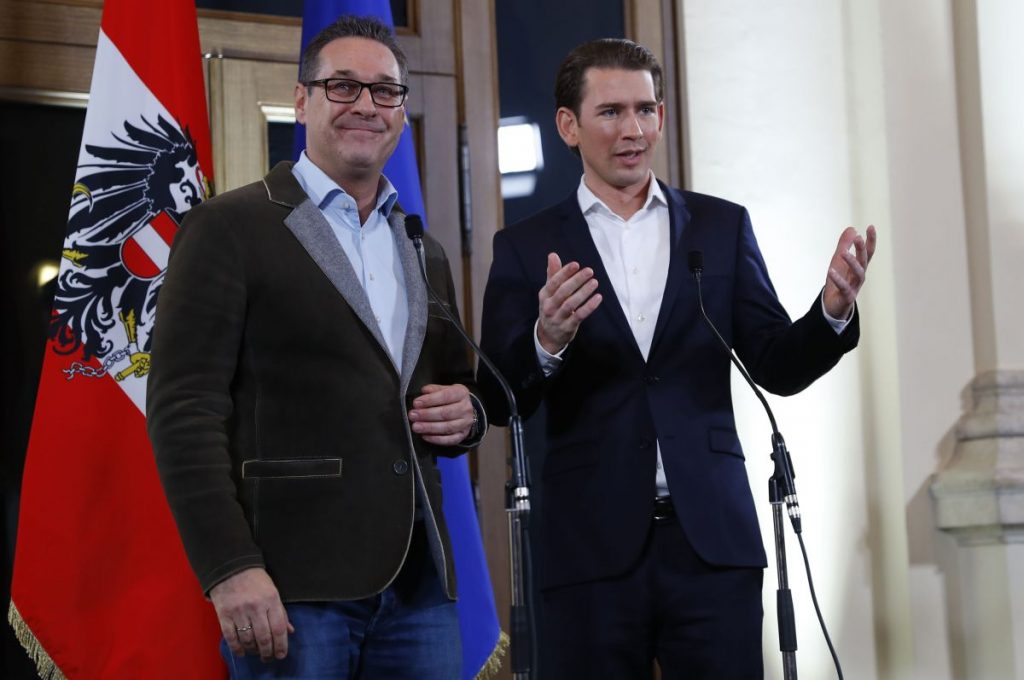
The 42-year-old politician, fluent in Russian, not only introduced the “false niece” to Strache but also helped with the translation. The case ended with the resignation of those involved in the scandal and all APS ministers. The government coalition, which included the Austrian Freedom Party, collapsed, and early parliamentary elections were announced. For the next four years, the APS, in fact, remained an outsider in the political life of Austria until, in the parliamentary elections in the federal state of Lower Austria, it took second place with a historical result of 25.4%, which is about 10% more than they had in parliament of the previous convocation, and entered the coalition.
She later won seats in the regional government of Salzburg, the wealthiest state outside Vienna. There were several important factors in the party’s revival: the pandemic, Russian aggression against Ukraine, economic instability, and the influx of large numbers of migrants. For each item, the APS had its agenda. So, during the pandemic, the Austrian Freedom Party organised protests against quarantine. Since the start of Putin’s all-out war against Ukraine, the party has put forward dozens of pro-Russian resolutions in the Austrian parliament. In March 2023, when Ukrainian President Vladimir Zelensky began a video address to the Austrian parliament, APS deputies placed signs on their tables with the inscriptions “Neutrality” and “Peace” and then left the hall in unison.
The APS today closely monitors the mindset of the Austrians and supports the position of those who do not want to confront the country that ensures their energy well-being. The Austrian branch of the famous German institute INSA has repeatedly recorded in surveys an increase in the number of citizens who do not support the current sanctions course of the European Union. Party leader Herbert Kickl also takes advantage of this, declaring that if he is elected chancellor, he will veto “senseless” EU sanctions against Russia. Using the example of the APS, one can trace the general trend of the far right concerning Moscow. Those who recently proudly declared their sympathies for the Kremlin, with the beginning of Russia’s aggression against Ukraine, suppressed their emotions and became pragmatists. The AfD, Herbert Kickl, Robert Fico’s SMER party, and, of course, the Hungarian Fidesz continue to oppose anti-Russian sanctions openly. But this is not motivated by sympathy for Moscow but by national interests. The only exception in this series was Giorgia Meloni, who consistently demonstrated support for Ukraine and provided it with all kinds of assistance “for as long as it takes.” And even the Western press has repeatedly admitted that this is atypical for a representative of an extreme right ideology.
Returning to the political agenda of the Austrian Freedom Party, it is essential to note that the anti-immigration theme for the APS remains one of the key ones. Against the backdrop of the fact that applications for asylum in Austria are growing exponentially, the party has formulated its attitude towards this process: “Austria is a fortress against migration.” Last but not least, the growth of the party’s popularity is the merit of its leader Herbert Kickl. In the government of Chancellor Kurz, he served as Minister of the Interior. He even became famous for changing the names of the state “Registration Centers for Migrants Seeking Asylum” to “Return Departure Centers.” This touch in his biography is eloquent in itself.
Many of the Freedom Party of Austria’s priorities focus on cultural identity. For example, one initiative aimed at saving small-town Austrian catering establishments promised subsidies but only on the condition that recipients serve “traditional and regional dishes.” Another suggested that children in school playgrounds would be forced to speak German. “Such ideas are often ridiculed in the Austrian media, but the party’s policies appear to be well received by many voters,” Politico writes.
Today, the Austrian Freedom Party, with a 27-29% rating, leads the national ratings. The growing popularity of the Freedom Party and its leader is clearly perceived without enthusiasm in EU leadership circles. Politico considers the possible rise of the APS to power as a “catastrophe” for the EU, and many experts interpret the political union of Kickl and Orban as a revival of the Austro-Hungarian Empire. Kickl himself, during his visit to Budapest, called Hungary “a refuge of national self-determination and resistance to the globalist interference of Brussels.”
As is often the case with the right, even if they win the elections, the prospects for their entry into power are very vague. It is possible to imagine a future coalition of the APS and the Austrian People’s Party, mainly since such coalitions already exist in Lower Austria and Salzburg following the results of local elections. But after the national elections, if so, on what terms Nehammer’s party will re-enter the coalition after “Ibiza Gate” (now as a junior partner) – raises specific questions. The only thing that does not raise questions is Herbert Kinkl’s ambition to become chancellor and play only the “first fiddle” in Austrian politics. There are even fewer questions about the future result of the APS in the elections to the European Parliament, where they will no doubt significantly increase their representation in the European group of the EP “Identity and Democracy”.
On the same day as the elections to the European Parliament, the next parliamentary elections will occur in another important European Union country – Belgium. The election race in the federal kingdom is led by the far-right separatist party Vlaams Belang (VB). Actually, this party is not entirely Belgian, as its name eloquently suggests. And she defends the interests of Flanders. This northern part of the country, where Dutch is spoken, is more prosperous and more populous than Wallonia. Belgium consists of three central regions and tries to find a balance between their interests. Flanders, Wallonia and Brussels have their differences, mainly in language, religion and culture. Belgium is a constitutional monarchy, and the king remains perhaps the most important factor keeping the country from collapse.
The main reason for the success of Vlaams Belang is the skillful exploitation of the anti-migration agenda, which is still essential to many Flemish voters since the migration crisis in 2015. Another significant asset of the party, its charismatic leader Tom van Grieken is a fan of Donald Trump and a “Belgian skeptic.” “We believe that Belgium is a forced marriage,” Van Grieken said in his office near the Brussels EU quarter. “If either of them wants to get a divorce, we will discuss it as adults… we must come to an orderly distribution. If they don’t want to sit with us at the negotiating table, we will do it unilaterally.”
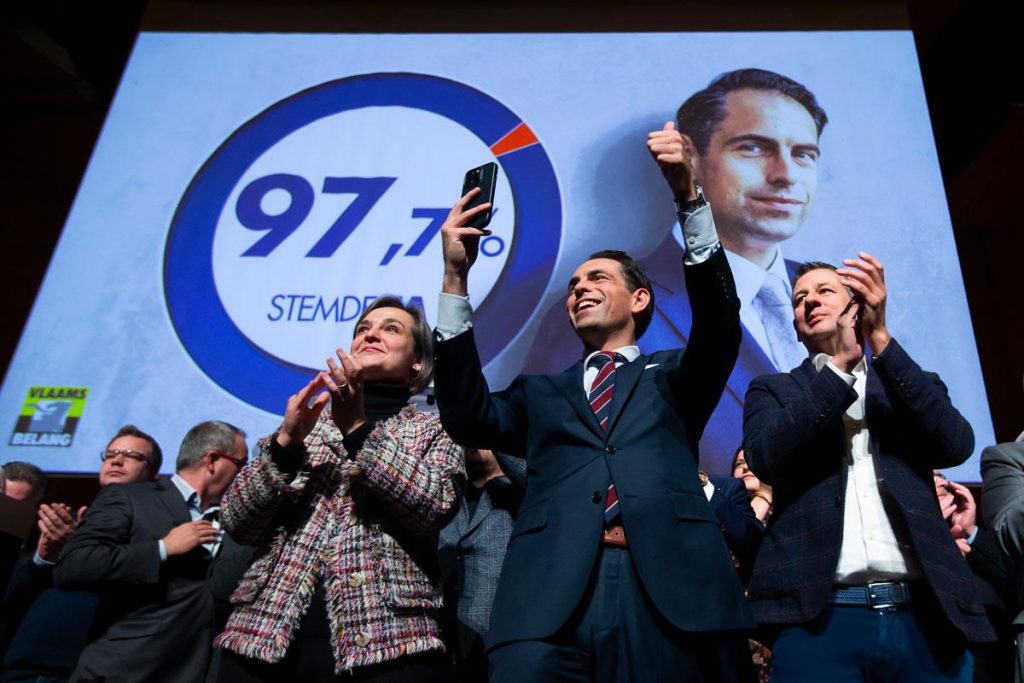
He even published a roadmap for Flemish independence, which he wants to achieve by the end of 2029. Today, according to a Politico poll, 25% of voters are ready to vote for the Flemish Interest. In second place is another conservative and nationalist party in Flanders, the New Flemish Alliance, with a support level of 21%. Vlaams Belang’s strategy is to join forces with the conservative New Flemish Alliance party after the vote. Together, they could win most seats in the Flemish parliament, declare Flanders a sovereign state and invite the Walloon government to carry out an orderly division of the Belgian federation. According to Vlaams Belang, the new Flemish country will remain a member of the European Union and NATO as a successor state to Belgium.
But the party also wants to transform the EU into an economic cooperation organization for sovereign countries without further integration. However, the “Flemish Interest” may encounter difficulties along this path. The fact is that the parties “New Flemish Alliance” and “Flemish Interest” have already won the parliamentary elections in 2019, gaining 25% and 18% of the votes, respectively. However, the parties could not create a coalition because, according to Belgian law, a government can only be made by a ruling coalition, in which parties from both Wallonia and Flanders must be represented. So, the victory of van Grieken’s party in the 2024 elections does not automatically guarantee him power. And besides, there is an informal agreement in the Belgian establishment not to create a coalition with the far right. Even the leader of another right-wing party, the New Flemish Alliance, with whom van Grieken associates his plans, Bart de Wever, says that he is not going to form a coalition with VB in its current form. So, the feasibility of the idea of an independent Flanders is a big question. Still, political instability in the country where the EU and NATO headquarters are located is entirely accurate, Politico notes.
In Romania, several election campaigns are also expected in 2024. Ahead of parliamentary, presidential and European elections in Romania, the far-right Alliance for the Union of Romanians (AUR) is growing in popularity. According to experts, in the next elections to the European Parliament, AUR can gain about 20%, and party leader George Simion ranks third among presidential candidates with the support of 18% of voters. The Alliance for the Union of Romanians has doubled its electoral support in the four years since the last parliamentary elections. The once-fringe party that promoted anti-vaccination theories during the COVID-19 pandemic has shifted its agenda to Ukraine since the onset of full-scale Russian aggression, declaring that the war is “not ours” and calling on the government to stop helping Kyiv and rethink its relations with Washington and Brussels.
AUR is against Bucharest continuing to supply weapons to Kyiv and hosting Ukrainian pilots who train on F-16 fighters. As part of his unionist rhetoric, one of the leaders of the AUR, Claudiu Tarziu, announced territorial claims to the Ukrainian lands of Northern Bukovina, Transcarpathia, Bessarabia, and the whole of Moldova. “We will not be truly sovereign until we reintegrate the Romanian state within its natural borders. Bessarabia must return home. Northern Bukovina cannot be forgotten, southern Bessarabia, Herza, Transcarpathia, everything that belonged and belonged to the Romanian nation must return to the borders of the state,” Tarziu said on the occasion of the Day of the Unification of the Principalities.
Experts note that the România Mare project—the maximum expansion of borders dating back to the Romanian Kingdom with Ukrainian Bukovina and the Republic of Moldova—was buried in the late 1990s. However, today, it has been taken over by far right. It is being played like an electoral card as well as the farmers’ card with blocking borders for the transit of Ukrainian agricultural products, where AUR and another right-wing party, SOS, capitalize protests into electoral dividends.
In this context, it is essential to note that the SOS party also vies for a seat in the Romanian parliament. These are fragments of AUR that have formed their own political project. It is headed by Senator Diana Shoshoake, who has a reputation as the “city madwoman”. With all this, her eccentricity and super-radicalism work pretty effectively. Due to her “fault,” the speech of Ukrainian President Vladimir Zelensky in the Romanian parliament was cancelled. Her anti-Ukrainian speeches were heard more than once from the parliamentary rostrum, which concerned the provision of military assistance to Ukraine and support for its accession to the EU. She more than once shocked her colleagues and the public with her pro-Russian statements, one of which ended with the phrase: “Glory to Moscow.” All this works well in electoral terms, and SOS has every chance of overcoming the 5% barrier, gaining a faction in the next parliament.
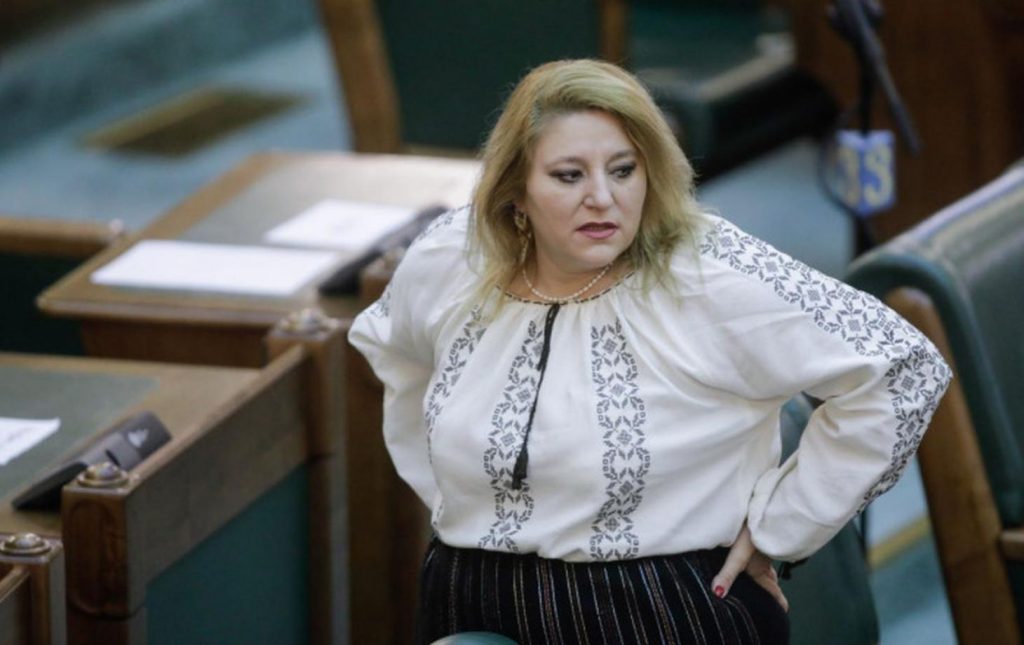
However, neither pretentious unionist and anti-Ukrainian rhetoric nor other right-wing “instruments” have yet brought either AUR or SOS closer to coming to power. As in other similar cases, in Romania specific trends that have developed around right-wing parties also persist: despite all their progress and victories, they are still far from direct and immediate influence on the government. The main reason is the opposition they receive, including from the traditional centre-right movements, which have been integrated into the system of political elites for decades. Almost similar examples can be observed in Portugal, where the leader of the victorious right-wing conservatives from the PSD, Luis Montenegro, said that he would not ally with his Chega party, which was nominally close to him, even though without this, it would be tough to form a ruling coalition. Romania has its history. There is a consensus among the political elites that it is not worth shaking hands with AUR and SOS yet so as not to get dirty.
Of course, when analysing trends in the proper and far-right political camps of the European Union, one cannot ignore France. It was there that right-wing ideology began to gain popularity. Suffice it to remember when, back in 2002, a supporter of Paris’s rejection of European integration and an ardent opponent of immigrants, Jean-Marie Le Pen, shocked the entire continent by entering the second round of the presidential election together with Jacques Chirac. The name Le Pen has become a brand of the French right. First, the father, with his political force, the National Front, and then the daughter, who kicked her father out of the party and sent him into political retirement, became right-wing fashion trendsetters and led to the beginning of tectonic processes in French politics.
The growing influence of the far right led to the weakening of the Socialist Party and its further displacement to the political margins. According to former French President Francois Hollande, they have “absorbed the traditional right” today, and the subsequent “victims” are the greens and, then, very likely, the centrists. Marine Le Pen has always shown everyone that she knows how to learn from mistakes, her own or others. In 2018, she carried out a party rebranding and renamed the famous and recognisable “National Front” to “National Rally” without regard to her father’s merits. Then, Marine Le Pen said she wanted to eliminate her lousy reputation and renew the right-wing movement after the failure in the presidential elections. Skilful manipulation of the political agenda bears fruit.
The year 2022 in France and throughout Europe marked the beginning of a right turn. First, in the presidential elections in April, Marine Le Pen, although she lost to Emmanuel Macron in the second round, scored a record 41%. If ten and a half million fellow citizens voted for it five years ago, then in 2022, there were almost three million more. “The French have demonstrated a desire to resist the power of Emmanuel Macron. We are starting a big battle for the parliamentary elections,” Marine Le Pen emphasised, speaking in front of her like-minded people.
Two months later, in the parliamentary elections to the National Assembly, Le Pen and the National Rally achieved resounding success. Firstly, they received 89 mandates and increased their representation in parliament tenfold compared to the previous elections. Secondly, as Le Pen herself noted, the French took their destiny into their own hands and made Emmanuel Macron a minority president. In November 2022, Marine Le Pen left her position as head of the National Rally party to pursue presidential ambitions in 2027, saying that the president must unite all people and she needs to rise above party divisions. Le Pen clarified that she is not a candidate from the National Rally but acts as a candidate from all patriotic forces. This is evidenced by the new strategy of both the party and Le Pen, which, as experts note, can be expressed in the word “de-demonisation” and other words, the transformation of the party into a respectable conservative force. Le Pen takes part in a march against anti-Semitism and positions herself as a force protecting the Jews of France from anti-Semites of the Muslim faith. After the start of Russia’s war against Ukraine, she tries to distance herself from the Kremlin. She declares that she has changed her attitude towards the Russian Federation and is not against Ukraine’s accession to NATO.
A new image moment that worked for the overall strategy was the election of 27-year-old Jordan Bardelli as head of the party, who was called upon to continue “normalising” the party. Bardella is considered a rising star on the French far right. The then 27-year-old politician became the third chairman of the far-right French party in 50 years and the first who does not bear the surname Le Pen. However, Bardella is also not a stranger to this family – he is in a relationship with one of Marine Le Pen’s nieces, Nolwenn Olivier. Bardelya does not hide that he intends to move only in the wake of Marine Le Pen’s strategy. In addition, Marine Le Pen remains the head of the faction in the National Assembly.

The far-right hopes to build on its success in the last parliamentary elections and transfer it to the elections to the European Parliament in 2024 and then to the level of municipal polls to capture as many city halls and city councils as possible. In France, citizens cannot be lured to the polls. This especially applies to young people. And here, the advantages of the young, charismatic, perfectly able to behave in front of television cameras, Jordan Bardell, will be in demand. He must lead his peers and people even younger, right down to those who will receive voting rights for the first time. These are the practical steps. To better train in the field of ideas, they followed the path of the RSDLP (b) and the CPSU: the emphasis was on the study of party activists associated with public universities, circles and improvised media on social networks.
The far right needs new goals and new slogans, understandable and not as head-on as the horror stories of the “great replacement” and “French suicide” by Eric Zemmour. It is necessary to convince conscious supporters and adherents of all kinds of conspiracy theories. Meanwhile, just changing the first person will not solve the problem. For the most part, the hierarchical, traditional structure of the party has remained the same. The same “old guard” of relatives, sons-in-law and godfathers sit in its Politburo, and sooner or later, Jordan Bardell will be faced with the need for renewal. He will inevitably have to, publicly declaring loyalty to his fathers and grandfathers, begin a new purge – similar to the one that Marine Le Pen already carried out in 2015, removing from leadership her father and his close associates of retirement age. According to experts, things will likely not come to the political “night of long knives,” but the “National Rally” will come to the 2027 elections much younger and more radical.
It seems that the tandem of Le Pen and Bardelli is becoming a robust and influential force. As Politico notes, French President Macron is alarmed by the growing popularity of the National Rally on the eve of the European Parliament elections. And not without reason. Polls show the far right, led by National Rally president Jordan Bardella, with 33% of the vote. If we add 6% support for another far-right party of Eric Zemmour, Reconquista, then the result of 39% promises to be the highest in the upcoming elections to the European Parliament. At the same time, President Macron’s party claims only 14% of the votes of French voters. Therefore, the resounding success of the French far right in the upcoming elections is no longer perceived as a fantasy, just like the victory of Marine Le Pen in the presidential elections in 2027.
Elections to the European Parliament: chances and prospects
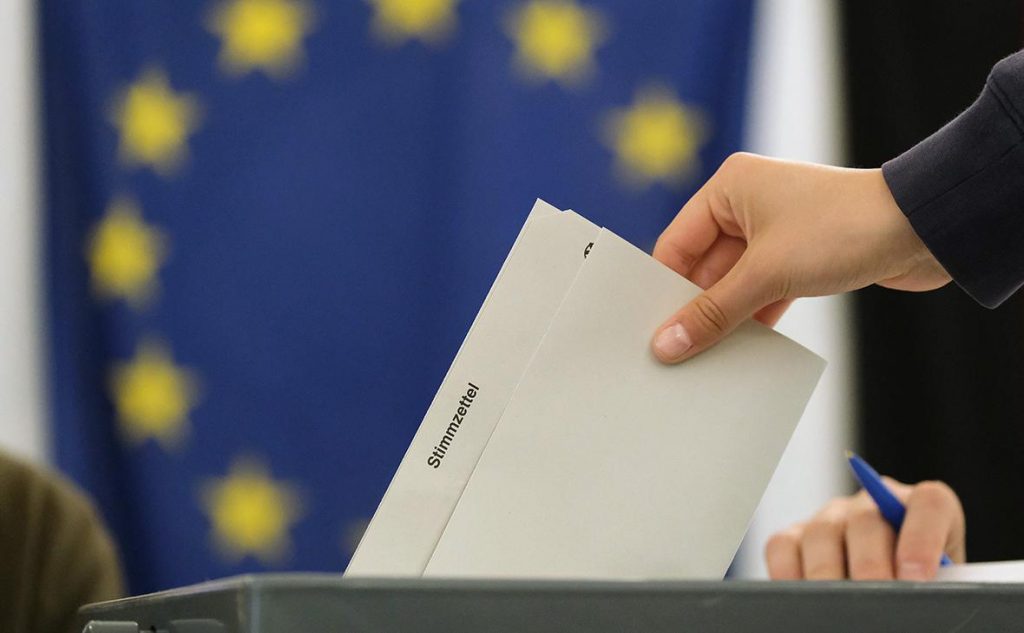
Elections to the European Parliament will take place from June 6 to 9. As we have already noted, interest in them is fueled mainly by the extent to which electoral preferences will swing towards far-right ideology and affect the future policy of the EP. Logically, the right turn in Europe raises alarmist sentiments regarding the continent’s future. The upcoming elections will be the first after Brexit. Residents of 27 EU countries will elect 720 deputies for a five-year term. All countries must be represented in parliament by at least six deputies, but not more than 96. The maximum number of mandates is assigned to Germany. Members of the European Parliament are elected in each EU state using a proportional system. There is no single voting procedure; it can occur using open and closed lists.
Until 2011, there was a five per cent threshold for elected parties, but it was declared unconstitutional. Now, countries set their own minimum threshold. Voters in each country vote for national parties, and the selected candidates are then assigned to European groups based on ideology. As a rule, national parties support a group that defends similar interests. Today, there are seven political groups in the European Parliament. European political groups are important because they determine who will occupy key positions in the European Parliament, such as the positions of heads of committees. In addition, EPGs receive more funding for their activities than independent deputies. In essence, the MEP becomes a “servant of two masters.” On the one hand, his position is influenced by the national party, from which he was elected to the European Parliament, and on the other, by the pan-European party group. If the main first determines the chances of a MEP being re-elected next time, then the second determines additional resources that help him advance the agenda at the EU level.
The far right flank in the European Parliament is represented by the group “European Conservatives and Reformists” (ECR), which has 67 seats, and “Identity and Democracy” (ID), with 58 seats. ECR is called a group of moderate Eurosceptics, and ID unites right and far-right politicians, Eurosceptics. Recent opinion polls indicate that the European Parliament may move even further to the right in the summer. Although the European People’s Party (EPP) and the Social Democrats continue to dominate, the ratings of the IID are steadily rising above all. If current trends continue, the far right could win almost a quarter of the seats. They are still far from reaching the majority, but they are showing themselves as a force whose influence on European politics will remain significant in the foreseeable future. According to Politico polls, if the elections were held in April, the balance of power would look like this:
- European People’s Party (EPP) – 175 seats;
- Progressive Alliance of Socialists and Democrats (S&D) – 139 seats;
- Identity and Democracy (IID) – 87 seats;
- “European Conservatives and Reformists” (ECR) – 76 seats;
- “Renewing Europe” (Renew) – 80 places;
- “Greens”/“European Free Alliance” (Greens – EFA) – 45 seats;
- “The Left” – 33 seats;
- Independent deputies – 46 seats.
Today, the configuration of political groups in the European Parliament looks like this:
- European People’s Party (EPP) – the largest faction in the European Parliament, conservative, 178 seats;
- Progressive Alliance of Socialists and Democrats (S&D) – social democratic, 141 seats;
- “Renewing Europe” (Renew) – liberal pro-European faction, 101 seats;
- “Greens”/European Free Alliance (Greens – EFA) – promotes the climate agenda and the interests of national minorities 71 seats;
- “European Conservatives and Reformists” (ECR) – moderate Eurosceptics, anti-federalists, 67 seats;
- “Identity and Democracy” (IID) – a group of right and far-right politicians, Eurosceptics, 58 seats;
- “The European Left” (The Left) – unites politicians with communist views, 38 seats.
- Independent deputies hold another 51 seats.
Thus, the ID faction, which traditionally includes representatives of the Alternative for Germany, the National Rally (France), and the League (Italy), can become the third largest and receive 87 to 93 deputies into its ranks. The largest votes for ID representatives are given in France, Germany and the Netherlands, while in Italy, the far-right League is inferior to the more centrist Brothers of Italy of the ECR. The ECR, which unites Polish national conservatives (Law and Justice) and Italian right-wingers (Brothers of Italy), has a chance to become the fourth group of influence and recruit 76 deputies. However, given the close ties between Giorgi Meloni and Viktor Orban, it can be assumed with a high degree of probability that the Hungarian FIDES, which today is not part of any of the groups, with its 14 mandates, can not only enter the ECR but also help it become the third largest numbers, bypassing ID.
Фото 16
As The Guardian notes, polls in all 27 EU member states show that right-wing populist Eurosceptic parties are likely to win first place in the polls in Austria, Belgium, the Czech Republic, France, Hungary, Italy, the Netherlands, Poland and Slovakia. They may be second or third in Bulgaria, Estonia, Finland, Germany, Latvia, Portugal, Romania, Spain and Sweden. Because Paris, Berlin, Rome and Madrid have the largest national quotas in the European Parliament, creating a far-right majority is not such a fantasy. This gives rise to panic that a turn to the right could complicate the legislative activities of the European Parliament, as well as change the EU’s internal and foreign policy course. As ECFR experts note, this will have the most significant impact not on the green agenda, which is not particularly interesting to right-wing forces. The ability of the European Commission and the EU Council to make foreign policy decisions, including on support for Ukraine, may also be at risk. However, fears around the possible victory of the far right are also part of the election campaign and a means of mobilising their electorate for opponents of Euroscepticism.
Today, with a greater degree of probability, we can say that the “super-large” coalition of the three centrist parties, EPP, S&D and Renew, may lose almost half of the seats following the elections. It is predicted that with a relatively small deterioration of five to ten mandates in the positions of the European People’s Party and the Social Democrats, the Liberals (Renew) and the Greens (EFA) will suffer the most significant electoral damage: the former is projected to receive 86 seats ( now 101), the second – 61 with the current 71. Then, a completely natural question will arise: what will the new configuration of the coalition be?
According to experts from the political science centre ECFR, it is impossible to take seriously that an “anti-European” coalition will be created between the far right and the far left. It’s like combining ice and fire. Other configurations are possible. The current “centre-left” coalition (S&D, G/EFA and “left”) will receive fewer seats in the European Parliament – 33% from 36% and cannot claim anything. But the most promising and very realistic option may be a “center-right coalition” consisting of the European People’s Party, liberals from Renewing Europe (Renew) and the group “European Conservatives and Reformists” (ECR).
This could happen if the largest European People’s Party more actively involves less radical and closer in spirit representatives of the “European Conservatives and Reformists” in the distribution of key posts. Most likely, the “Brothers of Italy” will have a “controlling stake” in this group. And the way Giorgi Meloni knows how to “change shoes” is well known. So, most likely, she will not miss such a profitable party to join the power coalition. One way or another, the far right will most likely have more weight in the European Parliament after the elections. But it is still unknown whether they are ready to revise their programs, negotiate and unite, and how far they can go when they get all the cards. However, with the exception of Hungary, they came to power only as part of coalitions and were forced to consider their partners’ interests. They will probably continue to try to modify existing political systems per their ideas, which, in turn, also change over time and circumstances.

